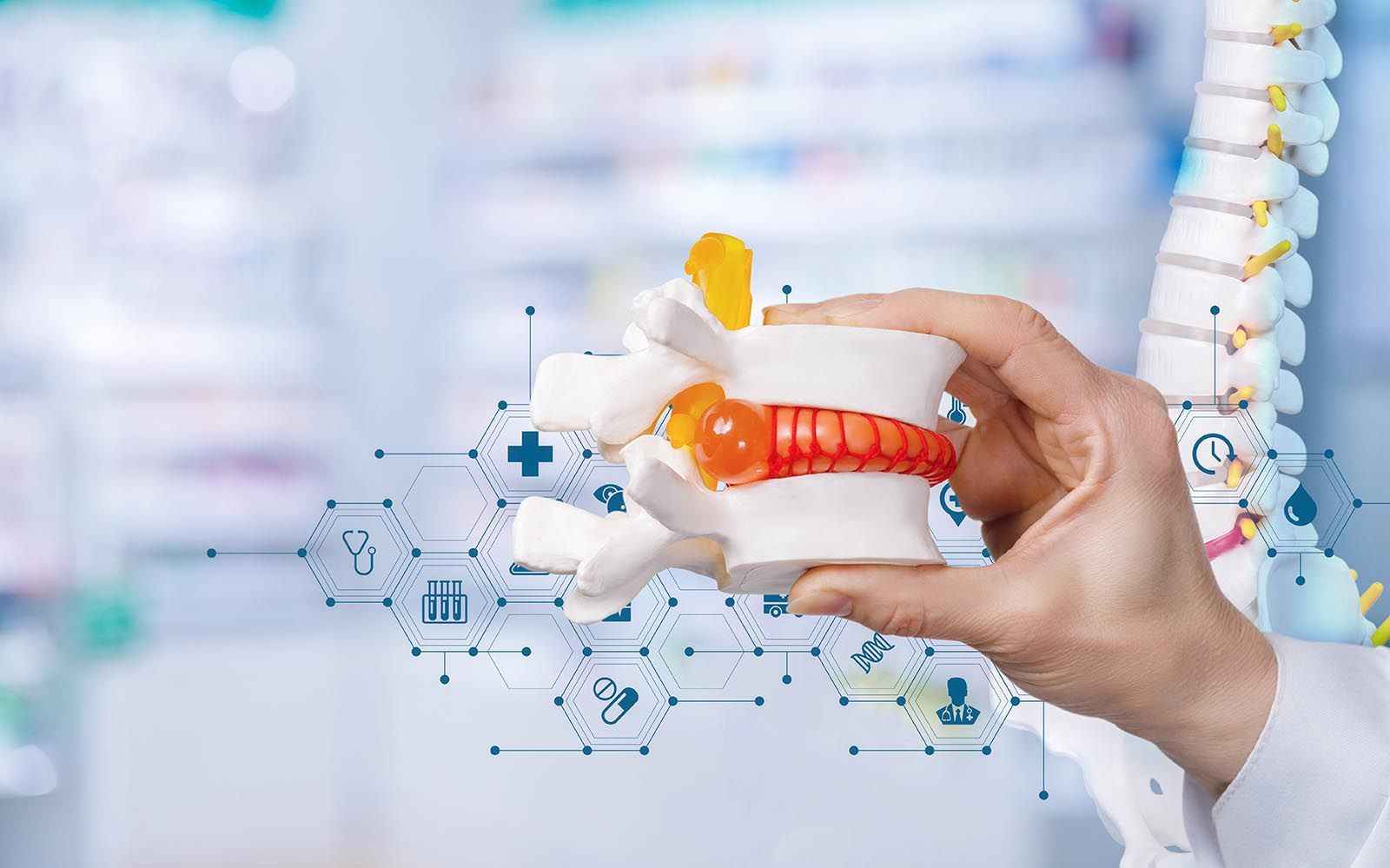
Disc Herniation
Your spinal discs are shock-absorbent, circular pads of tissue that fit between your spine’s vertebrae (bones). They protect and stabilize your spine. Discs have a fibrous outer layer and a soft, jelly-like core called the central pulp. When the central pulp starts to push outward, it causes a bulge. If the outer layer tears, the pulp can herniate, pushing through or leaking into your spinal canal.
What causes disc herniation?
Disc herniation can result from a fall or hard knock. The trauma could impact your spine and cause the vertebrae to compress, which puts pressure on your spinal discs so they bulge or herniate.
The natural effects of aging can also cause herniated discs. When you get older, you lose some of the fluid in your spinal discs. This condition (degenerative disc disease) makes the discs drier and weaker. Pressure on your spine can then tear the weakened disc so it herniates. Common causes of herniated discs in people with degenerative disc disease include:
- Obesity
- Lack of exercise
- Lifting heavy items
- Repeated movements
Dr. Weinstein orders X-ray, CT, or MRI diagnostic imaging to confirm you have a herniated disc.
How is a disc herniation treated?
The treatment Dr. Weinstein recommends for a herniated disc varies depending on your health, age, and how badly the herniation is affecting you. In many cases, conservative management is effective. Hot or cold compresses and physical therapy help to reduce inflammation and pain.
For patients who don’t get relief, steroid injections and medications like muscle relaxants and anti-inflammatories can help. Dr. Weinstein might recommend surgery if your symptoms are severe and conservative treatments don’t provide enough relief.
What surgery might I need for disc herniation?
Dr. Weinstein uses minimally invasive techniques to perform most disc herniation surgeries. He might do a laser discectomy, where he uses a laser to destroy part of the disc’s core. Or he can do a microendoscopic discectomy. In this operation, Dr. Weinstein removes the damaged disc material from your spine.
After a discectomy, you might need an artificial disc to stabilize your spine. Alternatively, Dr. Weinstein can fuse the vertebrae on either side, permanently joining them together. Artificial disc replacement preserves the natural movement of your spine. Fusion restricts movement in that part of your back but is an excellent choice for people who can’t have an artificial disc.
Call Comprehensive Orthopedic & Spine Care today or book an appointment online to discuss the best treatment for your herniated disc.








